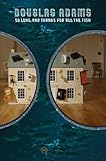
As President of the Continental Congress, he signed his name to the Declaration of Independence in letters so large that his name has become synonymous with “signature.” At a time when many people were trying to hide their allegiance to the cause of freedom, he boldly declared his own commitment.
The history books remember him as a wealthy merchant. Few mention that John Hancock was an orphan, brought up by his deceased father’s brother. It was that combination of tragedy and blessing that enabled John to become heir to his uncle’s booming import/export business between the colonies and the Mother Land.
Hancock graduated from Harvard University in 1754, then immersed himself in learning the family business. He spent a year in England to enlarge his circle of influence. While there, he attended the coronation of King George III (who would later want to arrest him). And upon his return to America, he took the helm of The House of Hancock.
From merchant to political leader
John entered politics in 1765 (the year the British Parliament passed the infamous Stamp Act), and progressed from Boston Selectman to president of the Provincial Congress. Hancock was senior major general of the Massachusetts Militia during the Revolutionary War and governor of the state for two separate terms afterwards. But it was his service as President of the Continental Congress—and his oversized signature on the document so dear to Americans—that has drawn the most attention from popular historians.
He used his wealth for the good of his nation
John Hancock’s deep involvement in the effort for independence earned him an unquestionable seat at the table of those called “Founding Fathers,” but little was written about him. Many of his peers considered him vain and arrogant—he rode in a highly decorated carriage, accompanied by servants and attendants. He was a man of status, and he did not try to hide the success he had achieved.
Despite what some saw as vainglory, however, John Hancock was also a philanthropist. As one familiar with suffering and loss, he supported orphans and widows, and he sought to provide opportunity to the common man.
How quickly we forget
Elbert Hubbard’s brief biography of John Hancock, one of the few insights we have into the particulars of the life of a man who seemed to exhibit both humility and pride in ample proportion, puts it like this:
They neither preserved the data of his life, nor over his grave placed a headstone. The monument that now marks his resting-place was recently erected by the State of Massachusetts. He was buried in the Old Granary Burying-Ground, on Tremont Street, and only a step from his grave sleeps his friend Samuel Adams.
Wealthy on the outside, down-to-earth on the inside and a sacrificial supporter of freedom for all … he was a Founding Father of the United States of America: John Hancock.
(Thank you to the U.S. Library of Congress for preserving and making available the signature of John Hancock on the Declaration of Independence.)
Author Lane Goodberry focuses on entrepreneurship and the free enterprise system. Lane knows the value of individual effort and the blessings of Freedom.

























































No comments:
Post a Comment
Please leave us some love...and have yourself a groovy day~!! Peaces...xoxo